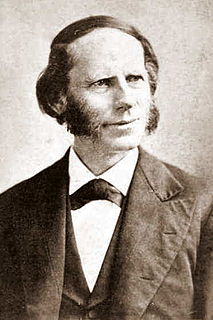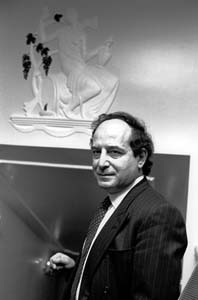A Quote by Friedrich Nietzsche
The man who does not wish to belong to the mass needs only to cease taking himself easily; let him follow his conscience, which calls to him: "Be your self! All you are now doing, thinking, desiring, is not you yourself.
Related Quotes
It is God, Who is merciful and grants everyone what he needs, Who is building him up when He gives him more than he needs; in doing so He shows the abundance of His love for men and teaches him to give thanks. When He does not grant him what he needs, He makes him compensate for the thing he needs through the working of the mind and teaches him patience.
Sex divorced from love, instead of raising man by taking him away from himself, drags him down to the hall of mirrors where he is always confronted with self. Sex does not care about the person, but about the act. The fig leaf which once was put over the secret parts of man and woman in sculpture is now put over the face. The person does not matter.
A good soldier is a blind, heartless, soulless, murderous machine. He is not a man. His is not a brute, for brutes kill only in self defense. All that is human in him, all that is divine in him, all that constitutes the man has been sworn away when he took the enlistment roll. His mind, his conscience, aye, his very soul, are in the keeping of his officer. No man can fall lower than a soldier-it is a depth beneath which we cannot go.
I have no religion, and at times I wish all religions at the bottom of the sea. He is a weak ruler who needs religion to uphold his government; it is as if he would catch his people in a trap. My people are going to learn the principles of democracy, the dictates of truth and the teachings of science. Superstition must go. Let them worship as they will; every man can follow his own conscience, provided it does not interfere with sane reason or bid him against the liberty of his fellow-men.
If any man would come after me, let him deny himself." The disciple must say to himself the same words Peter said of Christ when he denied him: "I know not this man." Self-denial is never just a series of isolated acts of mortification or asceticism. It is not suicide, for there is an element of self-will even in that. To deny oneself is to be aware only of Christ and no more of self, to see only him who goes before and no more the road which is too hard for us. Once more, all that self denial can say is: "He leads the way, keep close to him.
A guide, on finding a man who has lost his way, brings him back to the right path—he does not mock and jeer at him and then take himself off. You also must show the unlearned man the truth, and you will see that he will follow. But so long as you do not show it him, you should not mock, but rather feel your own incapacity.
You are a free man, and let no organization come between you and your best interests. Do not let any man, or any body of men, tell you where you shall work, or where you shall not work, when you shall work, or when, you shall not work. If a man wants to belong to a labor organization, let him belong. If he does not want to belong to a labor organization, let him have perfect liberty to stay out. You own yourself. Let no man put a manacle on your hand, or foot, or head, or heart.
To free a man from suffering, he must be set right, put in health; and the health at the root of man's being, his rightness, is to be free from wrongness, that is, from sin. A man is right when there is no wrong in him. I do not mean set free from the sins he has done: that will follow; I mean the sins he is doing, or is capable of doing; the sins in his being which spoil his nature — the wrongness in him — the evil he consents to; the sin he is, which makes him do the sin he does.
The monster does not need the hero. it is the hero who needs him for his very existence. When the hero confronts the monster, he has yet neither power nor knowledge, the monster is his secret father who will invest him with a power and knowledge that can belong to one man only, and that only the monster can give.
What a man does, that he has. What has he to do with hope or fear? In himself is his might. Let him regard no good as solid but that which is in his nature, and which must grow out of him as long as he exists. The goods of fortune may come and go like summer leaves; let him scatter them on every wind as the momentary signs of his infinite productiveness.
Society is to the individual what the sun and showers are to the seed. It develops him, expands him, unfolds him, calls him out of himself. Other men are his opportunity. Each one is a match which ignites some new tinder in him unignitible by any previous match. Without these the sparks of individuality would sleep in him forever.
You must never call your enemy by a name you choose for him." “Instead you must call him by the name he calls himself. What he chooses will reflect his pride; it will reveal his desires. But what you choose to call him will reveal your fears, which should be kept to yourself, lest your enemy find the way to exploit them.
As long as a man is persuaded that he can make even the smallest contribution to his salvation, he remains self-confident and does not utterly despair of himself, and so is not humbled before God. Such a man plans out for himself a position, an occasion, a work, which shall bring him final salvation, but which will not.







































